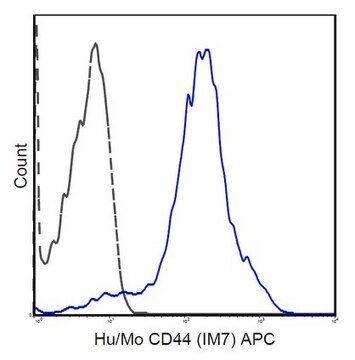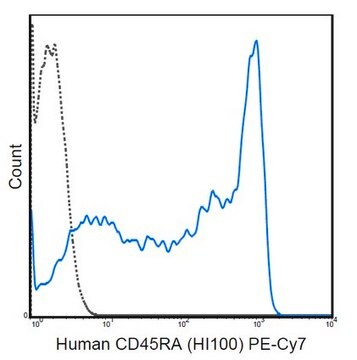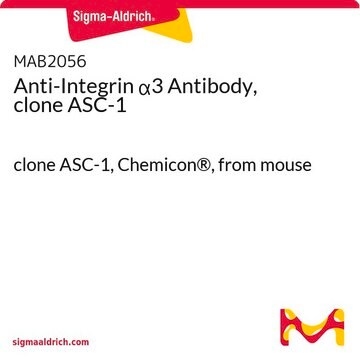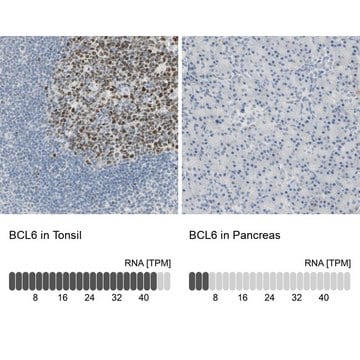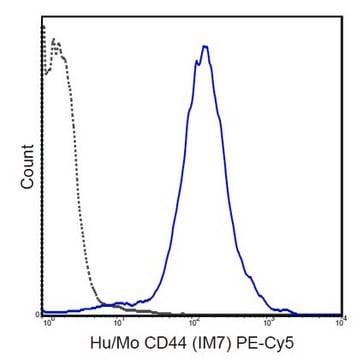MABF577
Anti-CD4 Antibody (mouse), APC-Cy7, clone RM4-5
clone RM4-5, 0.2 mg/mL, from rat
Synonyme(s) :
T-cell surface glycoprotein CD4, T-cell differentiation antigen L3T4, T-cell surface antigen T4/Leu-3, CD4
About This Item
Produits recommandés
Source biologique
rat
Niveau de qualité
Conjugué
APC-Cy7
Forme d'anticorps
purified antibody
Type de produit anticorps
primary antibodies
Clone
RM4-5, monoclonal
Espèces réactives
mouse
Conditionnement
antibody small pack of 25 μg
Concentration
0.2 mg/mL
Technique(s)
flow cytometry: suitable
immunofluorescence: suitable
immunohistochemistry: suitable
immunoprecipitation (IP): suitable
Isotype
IgG2aκ
Numéro d'accès UniProt
Conditions d'expédition
wet ice
Modification post-traductionnelle de la cible
unmodified
Informations sur le gène
mouse ... Cd4(12504)
Description générale
Immunogène
Application
Inflammation & Immunology
Qualité
Flow Cytometry Analysis: 0.25 μg of this antibody detected CD4 in one million C57Bl/6 splenocytes.
Forme physique
Stockage et stabilité
Clause de non-responsabilité
Not finding the right product?
Try our Outil de sélection de produits.
Code de la classe de stockage
12 - Non Combustible Liquids
Classe de danger pour l'eau (WGK)
nwg
Point d'éclair (°F)
Not applicable
Point d'éclair (°C)
Not applicable
Certificats d'analyse (COA)
Recherchez un Certificats d'analyse (COA) en saisissant le numéro de lot du produit. Les numéros de lot figurent sur l'étiquette du produit après les mots "Lot" ou "Batch".
Déjà en possession de ce produit ?
Retrouvez la documentation relative aux produits que vous avez récemment achetés dans la Bibliothèque de documents.
Notre équipe de scientifiques dispose d'une expérience dans tous les secteurs de la recherche, notamment en sciences de la vie, science des matériaux, synthèse chimique, chromatographie, analyse et dans de nombreux autres domaines..
Contacter notre Service technique
